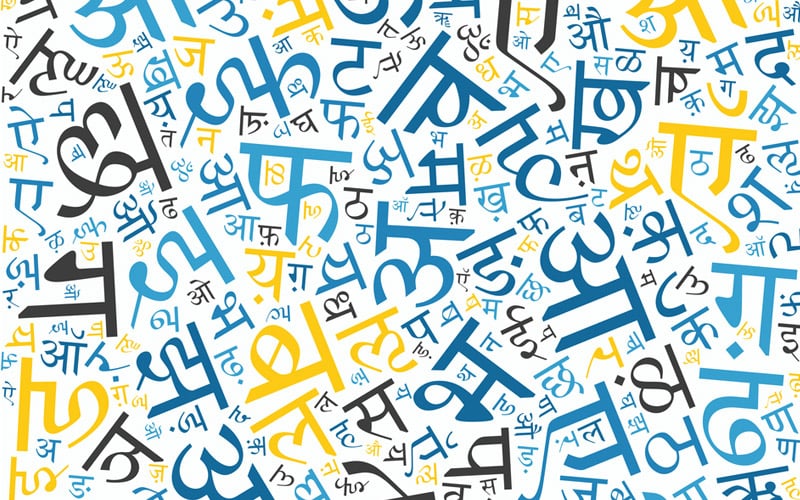In Which Script Is Hindi Written?

Hindi, the language widely spoken across the South Asian country of India, is written in the Devanagari script (referred to as the Devanagari Lipi).
Hindi is one of the 22 scheduled languages of India and one of the two languages of official communication by the central government. It is the fourth-most spoken language in the world with about 425 million native speakers and 120 million speaking it as a second language.
The Devanagari script that is used to write Hindi is also called Nagari and traces its origin to the Brahmi alphabet and the Gupta script, which were heavily used across northern India before the 7th century. By the 11th century, the script had matured and gained considerable popularity.
The name Nagari suggests that the script may have been developed in the cities (“Nagar” in Sanskrit and Hindi) and academic centres of medieval India; its transformation into Devanagari could have something to do with its adaptation as the script of Sanskrit, or its extensive use by the royals and scholars of the era.
Devanagari is characterized by rounded symmetrical alphabets and horizontal lines or strokes running along the top of its letters. It is a rather stylized cursive script. The fourteen vowels and thirty-three consonants of Devanagari are each distinct in pronunciation. The use of half letter and diphthong also set Devanagari apart from other scripts.
Devanagari bears an uncanny resemblance to the scripts of other Indian languages such as Bengali, Odiya, and even Gurmukhi. This, perhaps, is because they belong to the same family (by origin) and only evolved differently. The Devanagari script is also very similar to the Nandinagari script used in ancient times in southern India.
Devanagari is said to be the script in which many different languages are written. Some of them such as Pali and Prakrit are no longer used except for academic purposes. A few other languages that use the Devanagari script –
-
Sanskrit
-
Prakrit
-
Marathi
-
Nepali
-
Pali
-
Sindhi
-
Maithili
-
Konkani
You may be interested in:
